The Role of a Meeting Planner: Efficient Event Organization

Introduction
Organizing an event is like conducting an orchestra; it requires a keen eye for detail, precise coordination, and a flair for creativity. An event planner is at the heart of this symphony, adept at multitasking and bringing together numerous elements to create a seamless experience. They must be proficient in venue selection, acquainted with the latest trends in logistics, and have a solid grasp of marketing strategies to ensure their event stands out.
Budgeting skills are also critical, as they must deliver an exceptional event without breaking the bank.
Event coordination is an art that combines practical skills with innovative thinking. As the industry evolves, the role of the event planner is becoming more complex and impactful. The pandemic has revolutionized the field, introducing the necessity for virtual event planning alongside traditional in-person gatherings—demonstrating the resilience and adaptability of the industry.
With a focus on creating engaging and meaningful experiences, event planners are now more than ever, the architects of connection and progress in the business world.
Key Responsibilities of a Meeting Planner
Organizing an event is like conducting an orchestra; it requires a keen eye for detail, precise coordination, and a flair for creativity. An event planner is at the heart of this symphony, adept at multitasking and bringing together numerous elements to create a seamless experience. They must be proficient in venue selection, acquainted with the latest trends in logistics, and have a solid grasp of marketing strategies to ensure their event stands out.
Budgeting skills are also critical, as they must deliver an exceptional event without breaking the bank.
Event coordination is an art that combines practical skills with innovative thinking. As the industry evolves, the role of the event planner is becoming more complex and impactful. The pandemic has revolutionized the field, introducing the necessity for virtual event planning alongside traditional in-person gatherings—demonstrating the resilience and adaptability of the industry.
With a focus on creating engaging and meaningful experiences, event planners are now more than ever, the architects of connection and progress in the business world.
Skills and Qualities Required for Meeting Planners
Crafting the perfect event takes a blend of art and science, requiring a meeting planner to possess an array of skills and qualities. At the heart of this role is effective communication, the ability to articulate ideas and inspire others to action. This skill is critical, especially when coordinating with diverse teams and stakeholders to ensure every event detail is aligned with the vision.
Moreover, today’s meeting planners are expected to be adept at using technology, leveraging cutting-edge tools to streamline processes and create engaging experiences. As demonstrated at the Evolve conference in London, the use of AI and digital solutions can significantly enhance event management, even amidst challenges like last-minute changes or competing events.
An understanding of systems thinking is also invaluable, allowing planners to see the interconnectedness of various event elements and their impact on the overall experience. This holistic perspective can lead to more sustainable and efficient event planning, much like the dynamic systems map utilized by the U.S. Agency for International Development’s Building Healthy Cities project to improve urban planning.
Furthermore, data analytics is becoming increasingly important in the field. By analyzing trends and job market data, such as the demand for data analysts in various industries, meeting planners can make informed decisions that align with current market needs and future opportunities.
Ultimately, a successful meeting planner is one who can navigate the complexities of event planning with creativity, strategic thinking, and a dedication to continuous learning and innovation.
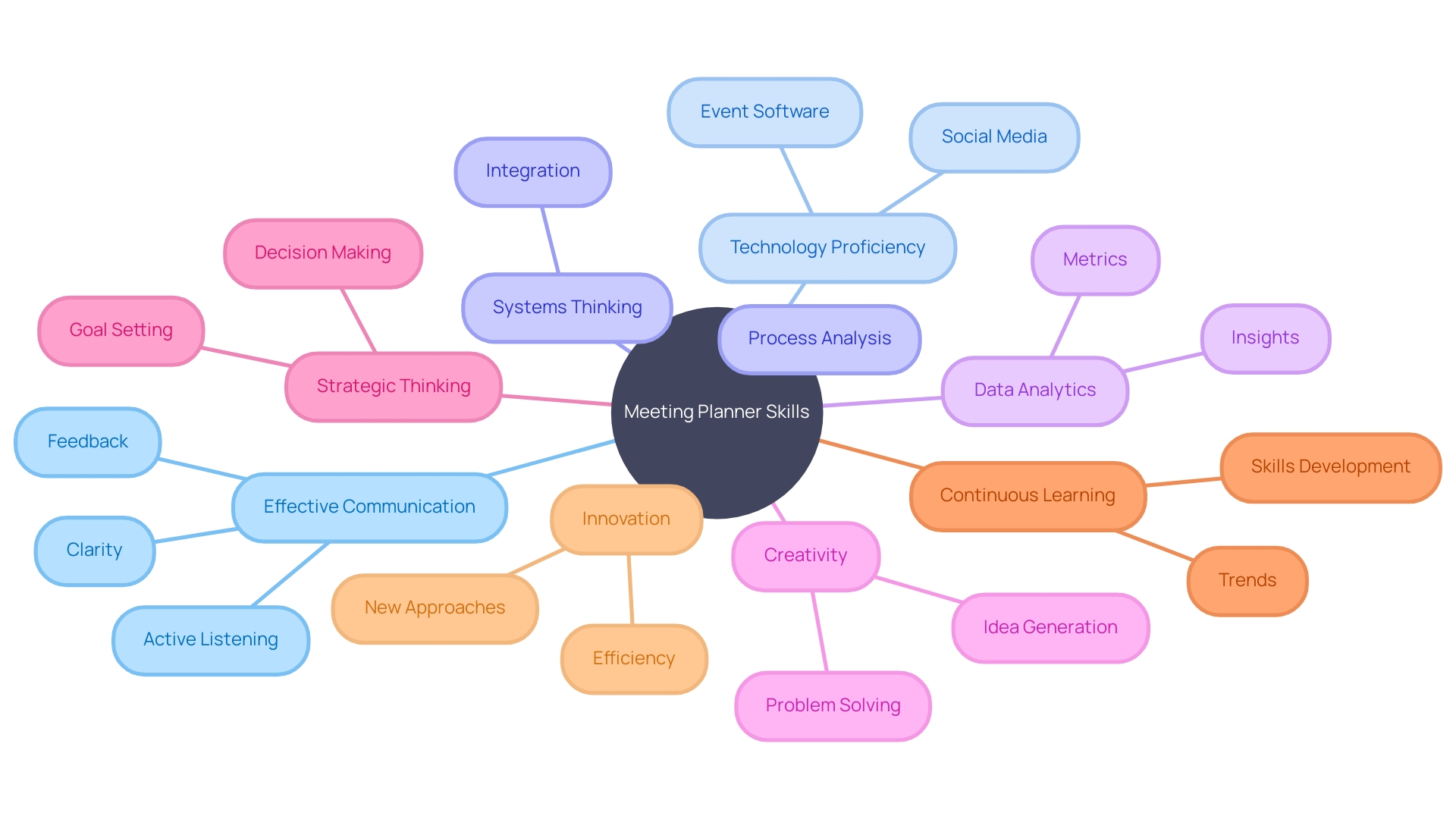
Strategic Thinking in Meeting Planning
Strategic thinking in meeting planning goes well beyond just setting an agenda. It’s about understanding the end goals and making informed choices to achieve them. By asking strategic questions, you can identify the core issues and opportunities at hand, whether it’s launching a new product or reorganizing for innovation.
Reflecting on these considerations and how they align with your objectives is the first step in crafting a successful plan.
For instance, let’s consider the importance of preparation, as highlighted by a business that shifted its raw material sourcing to more sustainable methods. The rigorous two-week prep time before their crucial meeting was a testament to how strategic thinking can lead to innovative solutions that not only save a business but also set it apart in the industry.
Meetings are a significant part of the business world, with a staggering 11 million held daily in the United States alone. However, with over $37 billion lost annually to unproductive meetings, it’s clear that a strategic approach is necessary. It’s essential to ponder whether a meeting is the best format for the communication at hand or if it could be replaced by an email, ensuring that the time spent in meetings is impactful and aligned with the company’s goals.
Strategy development is a four-part process encompassing objectives, strategy, development, and planning. Each component plays a crucial role in guiding you to your end goals. By setting measurable objectives, making visionary strategic choices, accommodating improvements, and following a specific action plan, you position your meetings—and your business—for success.
In the face of an evolving global business landscape, the meetings and events sector is a story of resilience and transformation. As Sophie Hulgard, Chief Sales Officer, points out, the trends shaping this industry serve as blueprints for success. Embracing collaboration and a commitment to excellence will ensure that each meeting is not just an event but a step forward in the collective journey of progress.
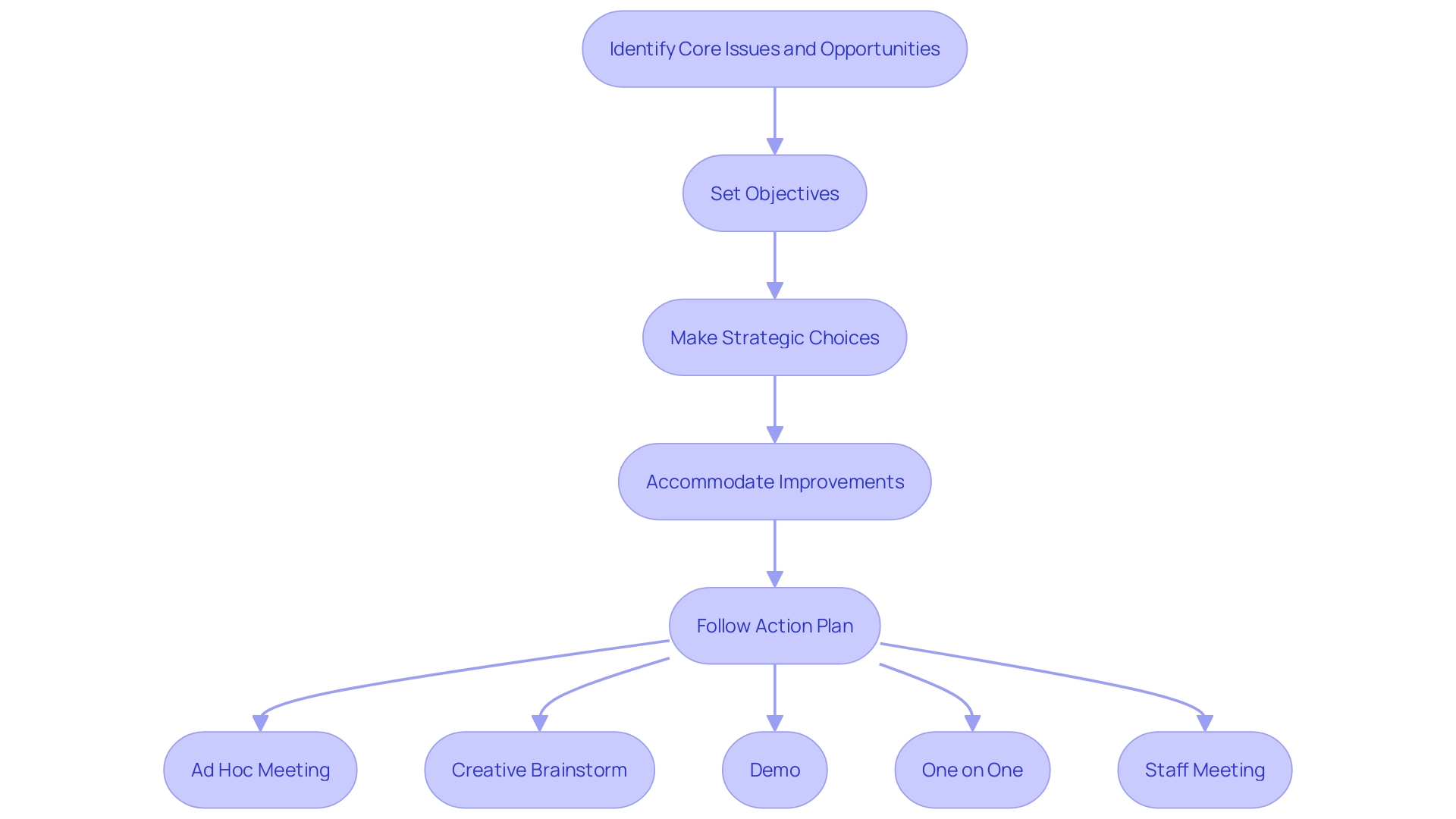
Risk Management and Problem-Solving
When orchestrating meetings and events, planners often encounter an intricate web of challenges that demand both robust risk management and inventive problem-solving skills. Understanding the interconnected systems at play is key to sidestepping potential pitfalls. Just as a city is a living organism influenced by various external and internal factors, so too is event planning a complex system of related components.
For instance, leveraging systems thinking, akin to the approach taken in the Building Healthy Cities project by USAID, can unearth patterns and solutions that might otherwise remain obscured.
The American Planning Association (APA) recognizes the importance of staying ahead of trends, as highlighted in their 2024 Trend Report, which provides a snapshot of over a hundred trends that influence the planning landscape. This forward-thinking approach is crucial in meeting planning, where being proactive rather than reactive can mean the difference between a successful event and one that falls short.
Moreover, the real-world implications of meetings cannot be overstated. According to Atlassian, the average employee spends an astonishing 31 hours each month in unproductive meetings. The costs of such inefficiencies are not just financial but also impact engagement and productivity.
Nobel laureate Daniel Kahneman suggests that reframing meetings with a clear, central question can drastically improve focus and alignment, transforming them into a problem-solving quest.
In the realm of meeting and event planning, the role of the ‘Mimeticist’ is to ensure that decisions reflect broader business and cultural realities, not just the insular corporate environment. This concept urges planners to integrate external influences and trends into their strategy, thus aligning their events with the wider world.
In essence, meeting planners must navigate a dynamic landscape where understanding relationships within systems, anticipating trends, asking the right questions, and aligning with external forces are not just beneficial but essential for success.
Vendor Management and Contract Negotiation
When it comes to vendor management and contract negotiation in the realm of meeting and event planning, the stakes are high and the details are critical. Experienced meeting planners understand that securing the right vendors and negotiating favorable terms can make or break an event. A savvy approach to these tasks is characterized by an emphasis on data-driven decision-making and informed negotiation strategies.
Utilizing data from past events, such as service issues, usage history, and performance metrics, can empower planners to negotiate with confidence. For instance, knowing the frequency and impact of past outages or product issues can bolster a planner’s position when demanding service level agreements with vendors that include penalties for non-compliance. This data-backed approach isn’t just theoretical; over 1,000 companies using the Common Paper platform have benefited from insights into the most common contract terms, aiding them in their negotiations.
With the pressures of rising costs and the expectation to deliver top-tier events, planners must navigate the complexities of vendor relations with a blend of strategic insights and practical experience. As the industry evolves, with nearly half of planners anticipating more bookings in 2024 compared to 2023, the importance of a well-orchestrated vendor management strategy has never been clearer. This involves setting clear objectives, fostering transparent communication, and establishing a regular cadence of meetings with vendors to ensure cohesion and mutual benefit.
After all, a win for the business should also be a win for the vendor, creating a symbiotic relationship that drives the success of both parties.
Budget Management and Financial Operations
- Crafting a budget for your meeting or event is not just about keeping track of expenses; it’s about making savvy investment decisions that align with your organizational goals. It’s essential to delve into potential solutions, weigh their expected ROI, and assess their impact on your resources. As Michael Grove of HotStats asserts, harnessing real-time performance data is vital for benchmarking and making informed budgeting decisions that can enhance your bottom line.
- When setting up your expense budget, remember it’s more than a list of costs—it tells the story of your project in numbers. It reflects your plans and priorities, whether it’s for labor, materials, or other indirect costs like publicity or insurance. The detail in your budget narrative is crucial for funders to understand not only the ‘what’ but also the ‘why’ behind the costs.
- Moreover, consider the decision-making architecture surrounding your budget. It’s not merely about balancing the books; it’s about strategic planning, public engagement, and assigning responsibility within your organization. The process of decision-making can be complex, often riddled with uncertainty and differing perspectives, but it’s critical for designing a budget that truly reflects the strategic direction of your event.
- Zero-based budgeting (ZBB) approaches can be particularly effective in promoting fiscal responsibility. With ZBB, you start with a clean slate each year, meticulously justifying each expense to ensure it’s necessary and aligns with your strategic goals. This method demands a fresh look at each cost without the influence of past spending, enabling a more strategic allocation of funds.
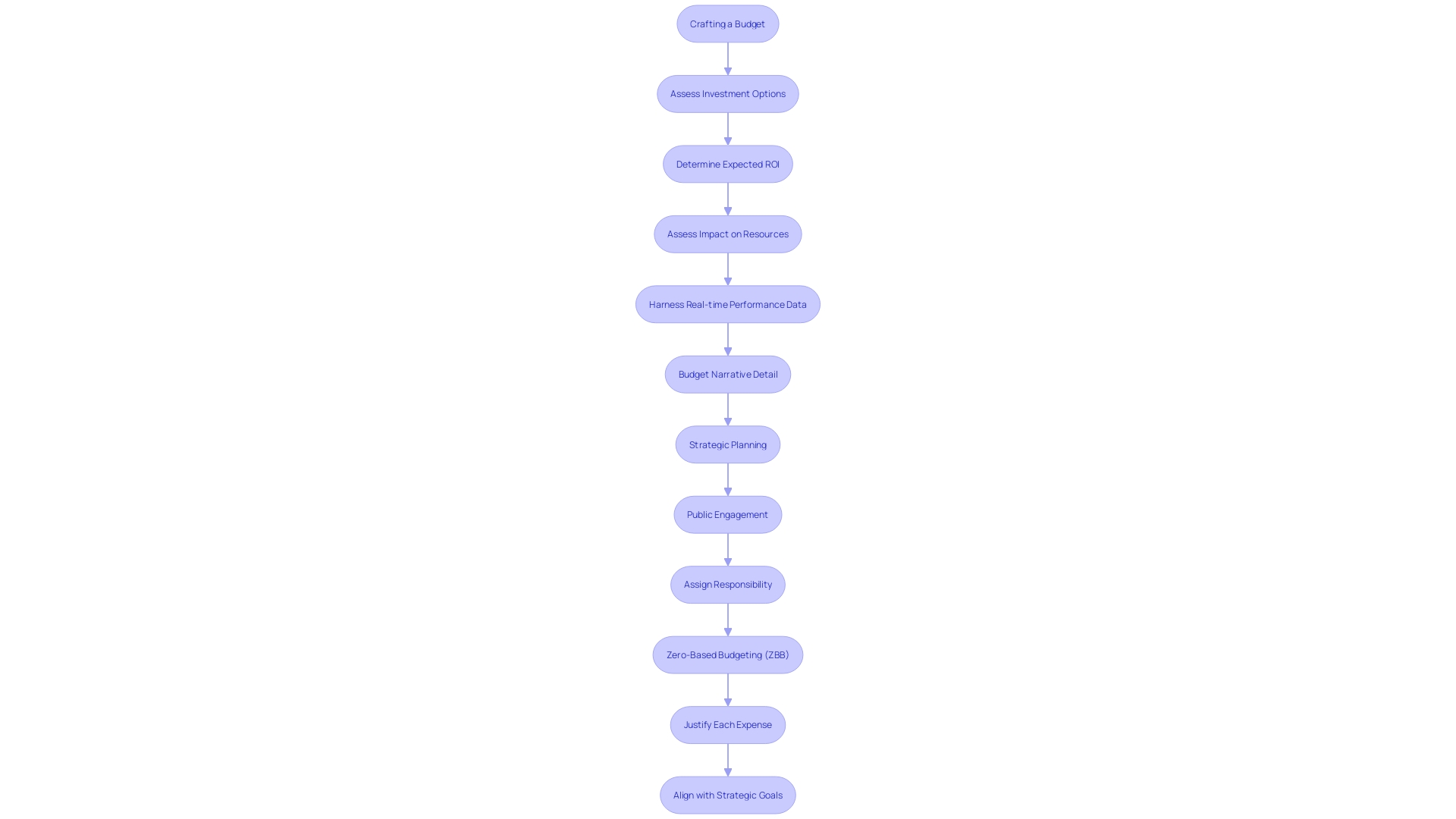
Logistics and Event Execution
When it comes to the art of meeting and event planning, the devil is in the details. From the initial concept to the final applause, every aspect requires meticulous attention. Crucial questions like the number of tickets, pricing strategy, and whether to have artwork on tickets play a significant role in shaping the attendee experience.
It’s not just about the maximum capacity of the venue, but also about the currency for ticket sales or if they should be transferable or ‘soulbound’ to prevent reselling.
Industry experts are constantly seeking ways to elevate the meeting experience, and the meetings and events landscape is rapidly evolving. A recent survey and in-depth interviews with over 500 global professionals have painted a statistically representative picture of the 2024 forecast for the industry, signaling a shift towards more sustainable, accessible, and inclusive events. This movement is driven by collaborations and initiatives like the Greek Meetings Alliance, where cities like Athens and Thessaloniki are at the forefront of promoting growth and setting new standards.
For those looking to start or enhance their event planning business, it’s clear that education is key. Event management programs provide a foundation in venue selection, logistics, marketing, and budgeting. Certifications and advanced skills learned through these programs are essential tools for success.
After all, with 11 million meetings occurring daily in the United States alone and organizations devoting 15% of their time to meetings, the stakes are high. The cost of unproductive meetings can be staggering, up to $37 billion annually, emphasizing the need for well-executed events that are not only productive but also engaging.
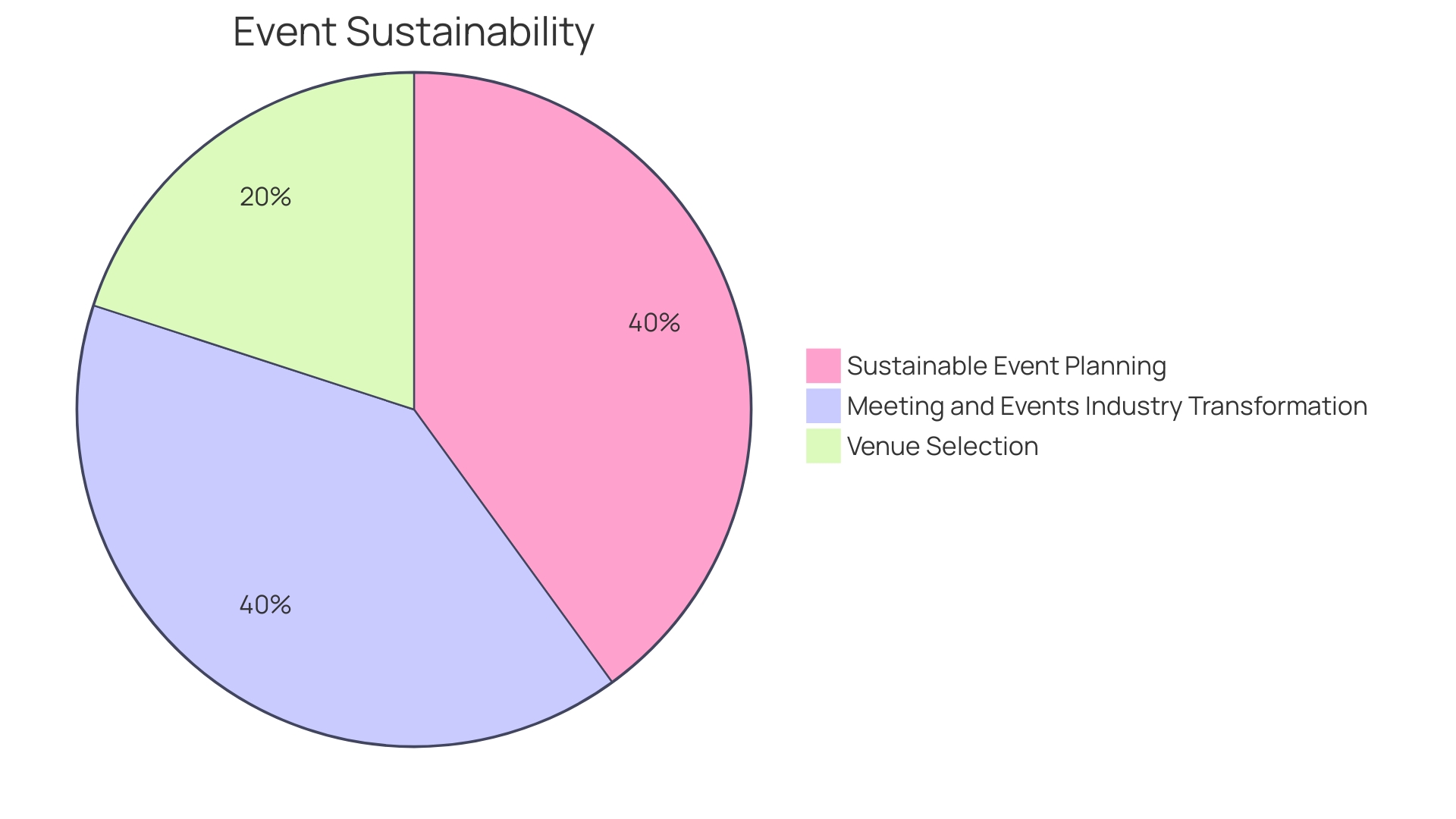
Ensuring Compliance with Legal and Safety Regulations
Event planners have a crucial role in ensuring the smooth and secure execution of events, which involves staying up to date with a multitude of regulations. One must be vigilant about the evolving landscape of legal and safety standards, including accessibility requirements that vary by location. For instance, while Denver has recently mandated accessible electric vehicle charging stations, other regions are yet to adopt such measures.
It’s essential to be proactive and incorporate accessibility into the design and planning stage to avoid potential legal and financial repercussions.
Moreover, in high-stakes industries such as aerospace, nuclear energy, or healthcare where the risks are substantial, adherence to safety protocols is not only about compliance but also about meticulous documentation of the process. Similarly, event planning requires a deep understanding of the nuances of privacy and data protection laws, as the use of attendee information must be respectful of individual privacy preferences. This is particularly important in an age where digital tools and cookies play a significant part in the user experience of event-related websites.
Furthermore, the unpredictable nature of risks, akin to the unpredictable rise in catastrophic wildfires in California, necessitates that event planners stay ahead of potential issues. This could include anything from minor design elements to major structural considerations. Engaging with experts to evaluate the compliance of event venues and services with the Americans with Disabilities Act (ADA) is a smart strategy that can save time and resources in the long run.
Finally, insights from Adam Wasilewski at Adobe Stock highlight that accessibility is more than just compliance—it can be an attractive and integral part of event design when done thoughtfully. With human freedom facing challenges in recent times, as reported by the Cato and Fraser Institutes, the value of meticulously planned and secure events that respect individual rights and foster a sense of inclusiveness has never been higher.
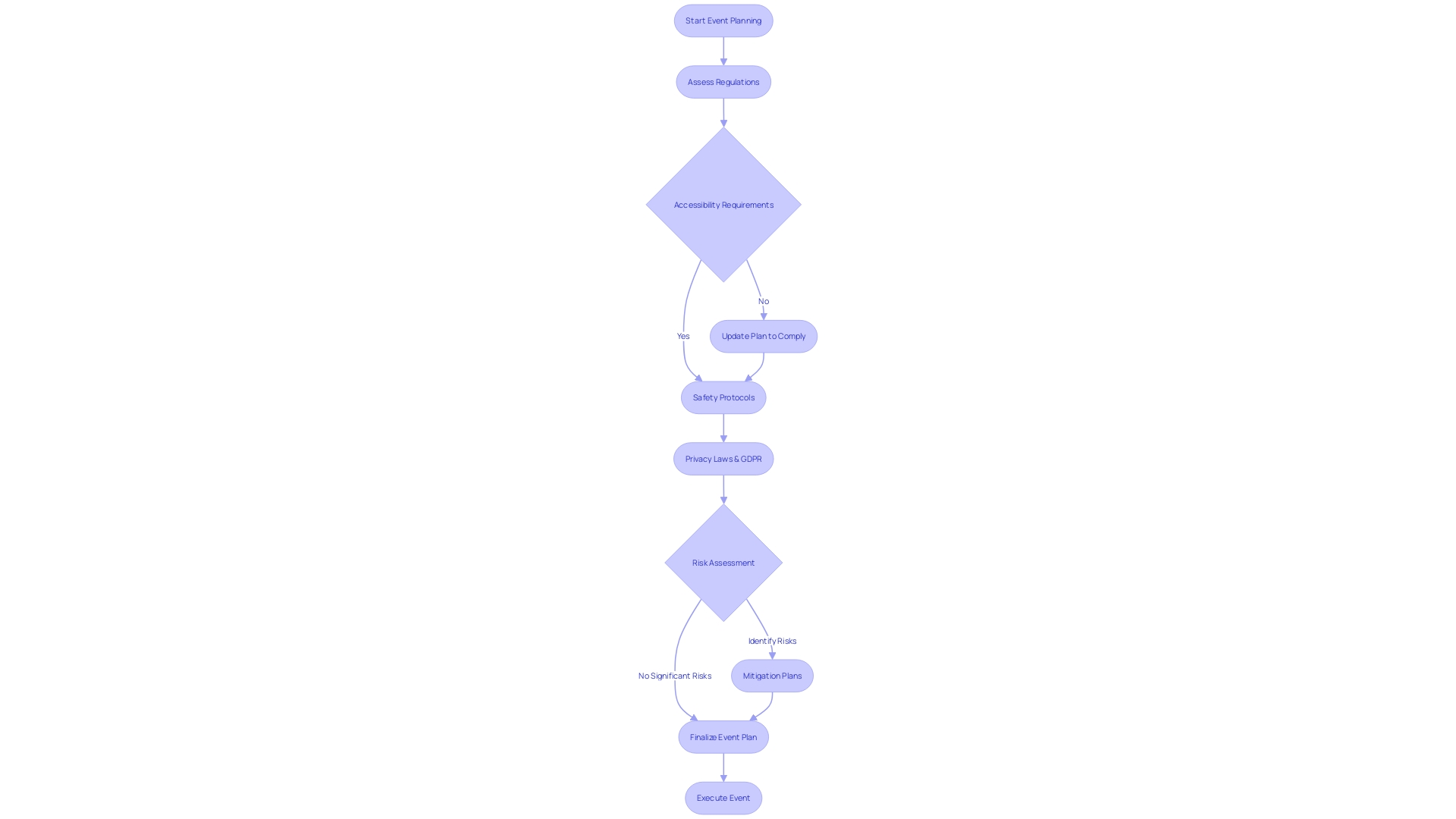
Communication and Relationship-Building
Communication and relationship-building are the cornerstones of successful meeting planning. To ensure an event’s success, it’s imperative to collaborate effectively with all stakeholders involved. A well-structured meeting with a clear goal is the heart of such collaboration.
For instance, consider a nonprofit focused on local housing issues; their meetings might center on finding funding, engaging with support services, and advocating policy changes, all aimed at alleviating housing insecurity.
When it comes to meetings, relevance is key. It’s crucial to ask, “Why are we having this meeting?” and to determine if the purpose of the meeting could be served just as well in an email.
This is especially true when the primary goal is information dissemination. Moreover, it’s important to ensure that everyone present in the meeting is there for a reason and stands to benefit from the conversation.
The art of meeting leadership involves orchestrating discussions with the right people, at the right time, for the right reasons. As Aristotle suggested, this is no simple task. It requires a deep understanding of your organization’s culture and the kinds of conversations that define it.
Successful meetings are built on the pillars of information sharing, processing, and decision-making, each supported by different types of transformative conversations.
It’s worth noting the extensive time organizations spend in meetings—roughly 15% of the time—with an alarming 83.13% of employees attending meetings for up to one-third of the week. Despite this, only 30% of meetings are deemed productive. Given these statistics, optimizing meeting structure and content is not just beneficial but necessary to prevent the annual loss of an estimated $37 billion due to unproductive meetings.
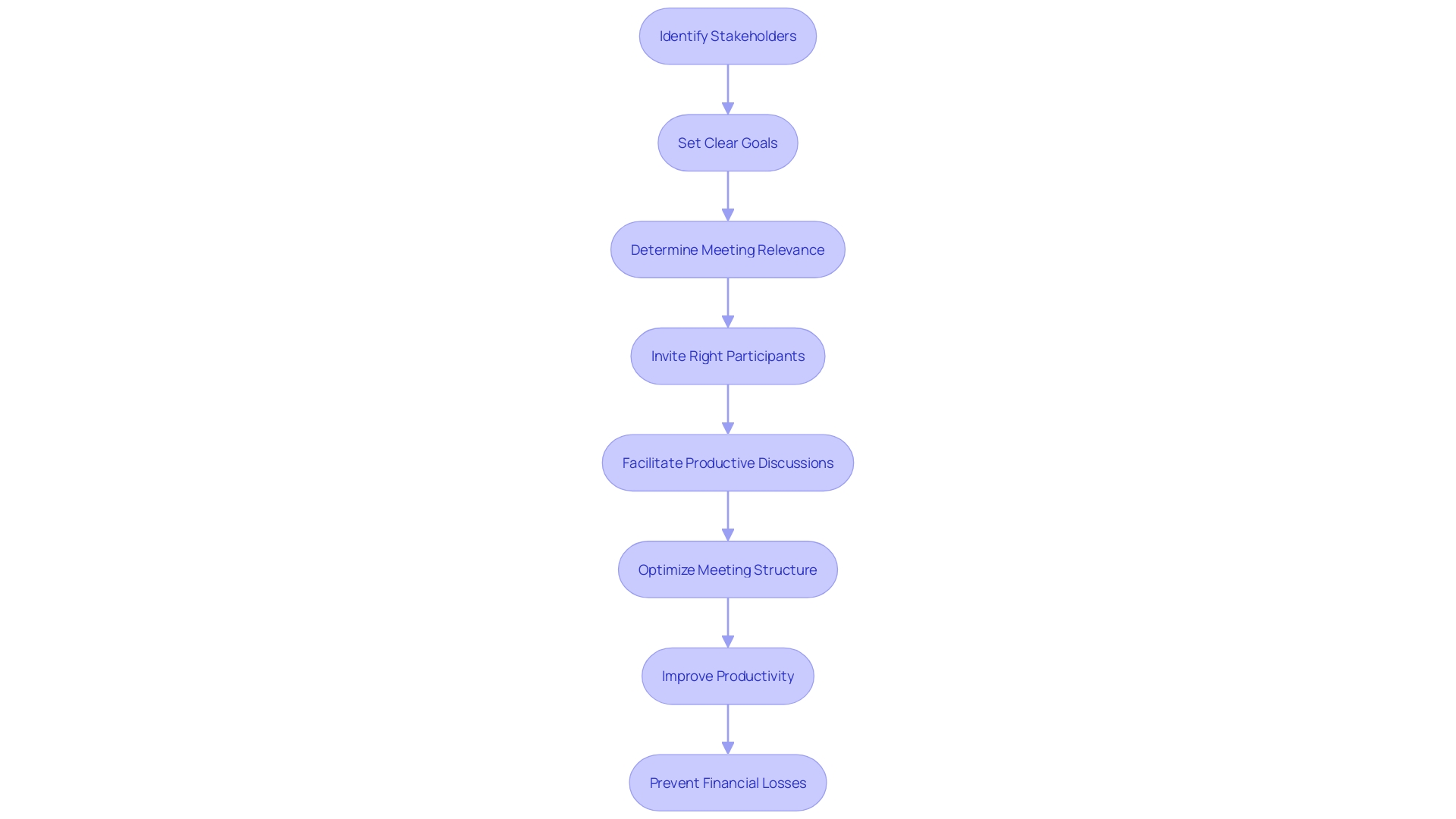
Time Management and Attention to Detail
Organizing a meeting can be an intricate puzzle, balancing the need for thorough preparation with the reality of pressing deadlines. To navigate this challenge, consider developing a precise agenda well in advance, which serves as a road map for the discussion, keeping the meeting focused and on schedule. This proactive approach was exemplified by a software engineering team that efficiently conducted a code review, thanks to the team leader setting clear expectations and fostering a constructive dialogue.
When preparing for a meeting, it’s crucial to ensure that all participants have access to the necessary materials to contribute meaningfully. This might include distributing documents or pre-recorded videos that can help clarify objectives and streamline the meeting process. Emphasize the value of each participant’s time by adopting methods that respect their focus and facilitate decision-making without resorting to unnecessary gatherings.
Reflecting on the broader meeting culture, statistics reveal a staggering number of meetings held daily, with a significant portion deemed unproductive. It’s estimated that unproductive meetings lead to an annual loss of $37 billion. To counter this, more and more professionals are experimenting with various time management techniques to enhance meeting efficiency.
By doing so, they not only respect the individual’s time but also contribute to the company’s bottom line. An effective meeting strategy can transform the way information is exchanged, decisions are made, and ideas are generated, ultimately leading to a more dynamic and productive organizational environment.
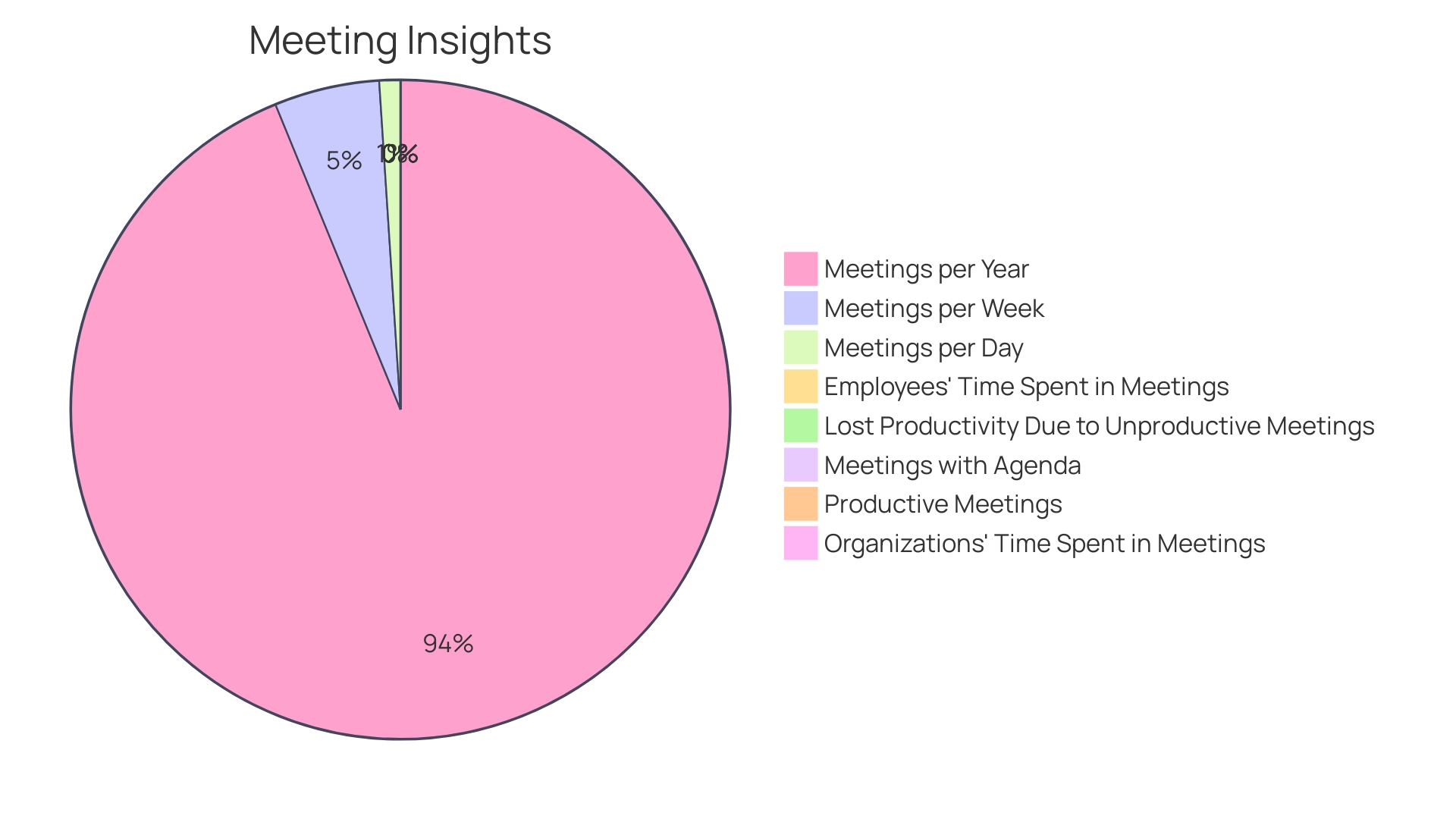
Post-Event Activities and Feedback
After the last attendee has logged off or walked out the door, the real work for any meeting planner begins. It’s the critical post-event phase where you dive into analysis to gauge your event’s impact. Let’s unpack what this entails.
Sophie Hulgard, a seasoned Chief Sales Officer, paints a vivid picture of the meetings and events industry as one of resilience and innovation. She underscores the importance of collaboration and a commitment to excellence for future success. This philosophy extends to post-event activities, which are pivotal in aligning content and messaging with participant engagement to ensure every meeting serves as a progress catalyst.
Pulling from the wisdom of experts like Maxwell, who emphasizes the necessity of aligning objectives with the attendee’s digital experience, it’s clear that every action taken by participants should serve a purpose. This comprehensive approach to event planning, coupled with a thorough post-event analysis, helps in defining measurable outcomes such as brand awareness and lead generation.
Moreover, as Meenaz Diamond, Senior Vice President of Meetings & Events, asserts, the quest for meaningful human connections remains at the forefront despite the rise of digital formats. This dual focus on return on investment (ROI) and return on experience (ROX) challenges us to rethink the very definition of an event, striving for deeper attendee connections and fostering a lasting sense of belonging.
In the software engineering realm, meetings are indispensable, driving projects and collaboration. A strategic approach, as told through John’s experience with a code review session, reveals the importance of well-facilitated discussions and a focus on constructive feedback for continuous improvement.
The narrative is supported by data suggesting the need for planning well in advance, as evidenced by the conference that set an application deadline eighteen days prior, considered early by industry standards. This forward-thinking approach is mirrored by Mx3 Co-founder and COO Cobus Heyl, who acknowledges the evolving expectations of attendees, highlighting the undiminished desire for human-to-human connections.
In essence, post-event activities are not just a wrap-up but a launchpad for future enhancements. They are an opportunity to reflect, learn, and strategize for even more impactful, connection-driven events.
The Evolution of the Meeting Planner Role
Event planning has undergone a remarkable transformation, driven by both technological advancements and shifts in how we conduct business and interact. Integrating tools like Google Analytics and Facebook Pixel, event coordinators now have the power to track and analyze data like never before, allowing for meticulously tailored events that cater to the precise needs of attendees and stakeholders.
Just as Tyler Technologies revolutionized public sector operations by connecting data across systems, so too has the event planning role evolved to encompass a broader scope of responsibilities, demanding a new set of skills and qualifications. The modern event coordinator must be adept at managing digital platforms, understanding analytics, and ensuring that the entire lifecycle of an event is seamless and engaging.
According to Sophie Hulgard, Chief Sales Officer at Accor, the industry’s resilience is evident in its ability to pivot during the pandemic, transitioning from in-person gatherings to digital experiences. Now, as we emerge into a new era, the event planning role is critical in shaping meetings and events that are not just gatherings, but are also hubs of progress, inspiration, and community.
The stakes are high, as the numbers show: with over a billion meetings held annually in the U.S. alone and significant resources invested in these events, the role of an event coordinator is more strategic than ever. To avoid the substantial losses associated with unproductive meetings, estimated at $37 billion annually, the event coordinator’s role must continue to adapt and innovate to ensure that every meeting not only meets but exceeds expectations, driving progress and fostering connections.
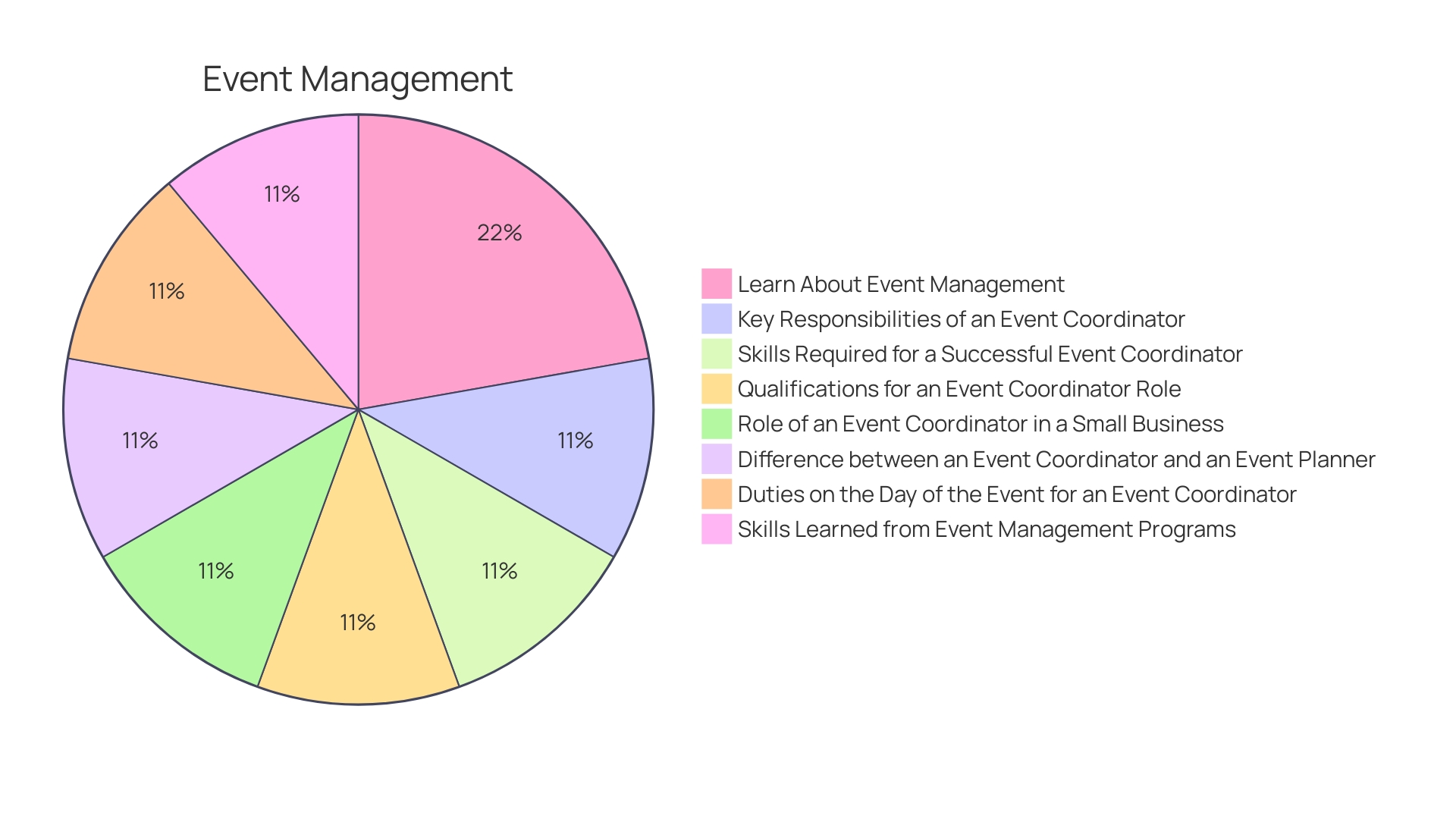
Conclusion
In conclusion, event planning is a multifaceted role that requires a combination of skills and qualities. Effective communication, technological proficiency, systems thinking, and data analytics are all essential for success in the industry. Strategic thinking is crucial in setting goals and making informed choices, while risk management and problem-solving skills help navigate the challenges that arise during the planning process.
Vendor management and contract negotiation are critical for securing the right partners, and budget management ensures that resources are allocated strategically. Attention to detail and time management are essential for executing events flawlessly, and compliance with legal and safety regulations is paramount. Communication and relationship-building are the cornerstones of successful meeting planning, and post-event activities and feedback analysis help drive continuous improvement.
Finally, the role of event planners has evolved with the advancements in technology and the changing business landscape, making adaptability and innovation key to success. By embracing these skills and qualities, event planners can create engaging and meaningful experiences that drive progress and foster connections. So, whether it’s a virtual or in-person gathering, event planners remain the architects of connection and progress in the business world.
Unlock your potential as an event planner and create unforgettable experiences that drive progress and foster connections.
